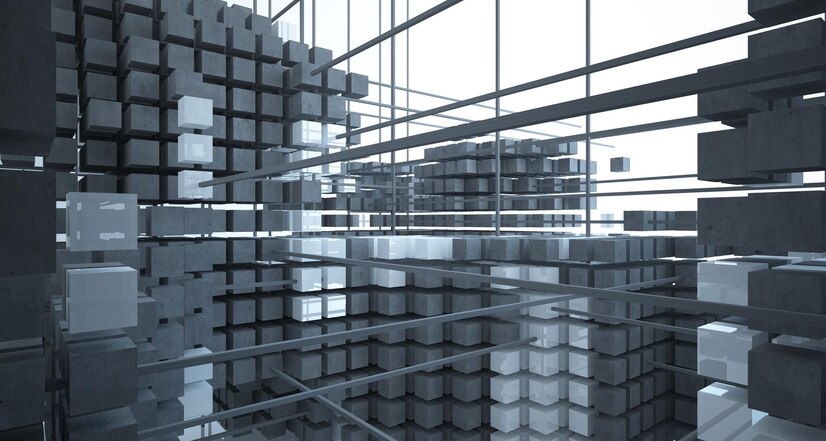Aluminum extrusion is a versatile and efficient manufacturing process that has become an essential component in numerous industries worldwide. This process involves forcing heated aluminum alloy through a die opening, resulting in a continuous profile with a consistent cross-section. The resulting extruded profiles can be customized to meet specific design requirements, making aluminum extrusion an ideal choice for a wide range of applications.
The Process of Aluminum Extrusion
The aluminum extrusion process begins with the selection of the appropriate aluminum alloy based on the desired properties, such as strength, corrosion resistance, and formability. The chosen alloy is then heated to a temperature between 800°F and 925°F (427°C and 496°C) to soften the metal and make it more malleable.
Next, the heated aluminum billet is placed into the extrusion press, where a hydraulic ram pushes the softened metal through a die opening. The die opening determines the shape and size of the extruded profile. As the aluminum is forced through the die, it takes on the desired cross-sectional shape and emerges as a continuous profile.
After extrusion, the profile is quickly cooled to maintain its shape and properties. The extrusion is then cut to the desired length and can undergo additional finishing processes, such as anodizing, painting, or machining, to meet specific application requirements.
Applications in Various Industries
Aluminum extrusion finds applications in a wide range of industries due to its versatility, strength, and cost-effectiveness. Some of the most prominent industries that rely on aluminum extrusion include:
- Aerospace: Aluminum extrusions are widely used in the aerospace industry for structural components, such as fuselage frames, wing ribs, and seat tracks. The high strength-to-weight ratio of aluminum makes it an ideal choice for reducing aircraft weight while maintaining structural integrity, leading to improved fuel efficiency and performance.
- Medical: In the medical industry, aluminum extrusions are used to manufacture various equipment and devices, such as hospital beds, wheelchairs, and medical carts. Aluminum's corrosion resistance and ease of cleaning make it suitable for sterile environments, while its lightweight properties enable easy maneuverability of medical equipment.
- Automotive: Aluminum extrusions play a crucial role in the automotive industry, providing lightweight and strong components for vehicles. Applications include structural frames, bumper systems, and interior trim pieces. The use of aluminum extrusions helps reduce vehicle weight, improve fuel efficiency, and enhance overall performance.
- Construction: The construction industry utilizes aluminum extrusions for various applications, such as window and door frames, curtain walls, and solar panel frames. Aluminum's durability, corrosion resistance, and thermal insulation properties make it an ideal choice for building components that need to withstand harsh environmental conditions.
- Consumer Goods: Aluminum extrusions are used to manufacture a wide range of consumer products, from electronic device housings and heat sinks to furniture and sporting goods. The versatility of the extrusion process allows for the creation of complex shapes and designs, while aluminum's lightweight and durable properties enhance product functionality and aesthetics.
Advantages of Aluminum Extrusion
Aluminum extrusion offers several advantages over other manufacturing processes, making it a preferred choice for many industries:
- Design Flexibility: The extrusion process allows for the creation of complex cross-sectional shapes and profiles, enabling designers to optimize components for specific applications. This flexibility reduces the need for additional fabrication processes, such as welding or machining, resulting in cost and time savings.
- Strength and Durability: Aluminum extrusions exhibit excellent strength-to-weight ratios, making them suitable for applications that require high structural integrity while minimizing weight. Additionally, aluminum's natural corrosion resistance ensures that extruded components can withstand harsh environments and maintain their properties over time.
- Cost-Effectiveness: Aluminum extrusion is a highly efficient process that minimizes material waste and reduces the need for secondary operations. The ability to create complex shapes in a single step also contributes to cost savings compared to other manufacturing methods, such as casting or machining.
- Recyclability: Aluminum is one of the most recyclable materials available, with up to 75% of all aluminum ever produced still in use today. The recyclability of aluminum extrusions not only reduces environmental impact but also contributes to the cost-effectiveness of the process, as recycled aluminum requires significantly less energy to produce than virgin aluminum.
Future Trends in Aluminum Extrusion Technology
As industries continue to evolve and demand more advanced solutions, aluminum extrusion technology is poised to keep pace with these changes. Some of the future trends in aluminum extrusion include:
- Lightweight Materials: The development of new aluminum alloys with improved strength-to-weight ratios will further enhance the performance of extruded components. These advancements will be particularly beneficial for industries such as aerospace and automotive, where weight reduction is a critical factor in improving fuel efficiency and reducing emissions.
- Additive Manufacturing Integration: The integration of additive manufacturing techniques, such as 3D printing, with aluminum extrusion will enable the creation of even more complex and customized components. This hybrid approach will combine the benefits of both technologies, allowing for greater design freedom and faster prototyping.
- Sustainable Production: As environmental concerns continue to drive industrial practices, aluminum extrusion companies will focus on implementing more sustainable production methods. This may include the increased use of recycled aluminum, energy-efficient equipment, and eco-friendly surface treatments.
- Industry 4.0 Adoption: The incorporation of Industry 4.0 technologies, such as automation, data analytics, and the Internet of Things (IoT), will streamline the aluminum extrusion process and improve overall efficiency. These advancements will enable real-time monitoring of production processes, predictive maintenance, and optimized resource utilization.
Aluminum extrusion has become an indispensable manufacturing process for numerous industries, providing a versatile, cost-effective, and sustainable solution for creating high-quality components. As industries continue to evolve and demand more advanced solutions, aluminum extrusion technology will adapt to meet these challenges head-on. By embracing new alloys, integrating with additive manufacturing, focusing on sustainability, and adopting Industry 4.0 practices, aluminum extrusion will remain the backbone of modern industries for years to come.


No comments yet